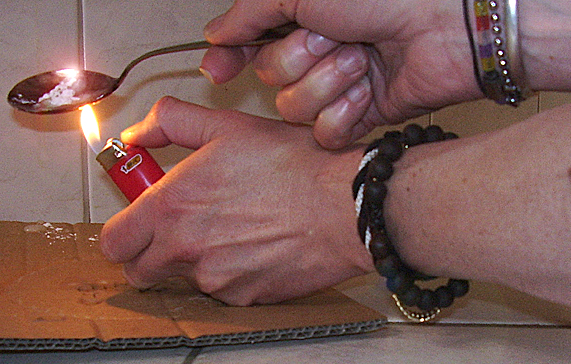Trauma Cleanup and the Drug Epidemic

As a provider of suicide cleanup and other trauma cleaning services, Aftermath technicians frequently come face to face with the terrible side effects of drug addiction. According to the Department of Health and Human Services, drugs and alcohol consistently play a factor in suicides committed by young adults. Once considered a problem endemic to large cities, harder drugs like heroin and meth are becoming increasingly common in smaller towns and rural areas.
Beyond the toll it takes on the individual sufferer, entire communities across the US have been impacted by drug abuse. This short article identifies some of the struggles faced in combating the drug problem in these areas, and highlights some of the bigger issues
Not In My Hometown
Perception is one half of the problem. Drug abuse may go unchecked in smaller communities simply because the residents refuse to admit there is a problem. What is seen as “big city” trouble isn’t treated with the level of seriousness required to combat the issue. Furthermore, in many cases, high school and college aged adults are more susceptible to the influence of drugs and alcohol. The Rural Assistance Center asserts that rural troubles such as a lack of jobs, widespread poverty, and limited social mobility lead to depression and other mental health issues, which in turn may lead to drug abuse. Additionally, a serious lack of resources, particularly those targeting drug awareness and addiction, can lead to widespread problems, as families and victims have little recourse for assistance.
Big cities still bear more than their fair share of the problem, although resources are marginally better in these areas. Individual communities still bear much of the burden, however; the problems they face are often similar to those impacting victims in rural areas. Recently, Aftermath assisted on cleaning a drug and hoarding situation in the Highland Park neighborhood of Seattle, Washington. The hoarded home had stood vacant for a period of time, attracting squatters and drug addicts who used the property for their own ends. The Washington Aftermath crew is no stranger to this kind of cleanup – frequently they are called in to assist with cleaning up needles and other dangerous biohazards from both public and private properties throughout the state.
Where to Go for Help
Addiction recovery services are often expensive, and there is no one treatment plan that works the same for everyone. Recovery.org features a list of hotlines and other services, and also gives the reader an idea of what to expect when seeking treatment or other services through these methods. Other websites, like Addictionandrecovery.org, offer readers a variety of materials and teach effective coping skills and recovery strategies online. Local hospitals and free counseling centers may offer additional support.
Aftermath Services works to build strong communities everywhere it operates. We pride ourselves on helping families onto the road to recovery, providing quality cleanup in situations involving hoarding, crime, and biohazards such as needles, infectious disease, and other health risks. Stay tuned later this week as we interview the Tacoma, Washington office on their efforts in the Pacific Northwest. Our teams of professional technicians are available nationwide and may be reached 24/7 by calling 877-872-4339.
 877-872-4339
877-872-4339  Contact Us
Contact Us 






